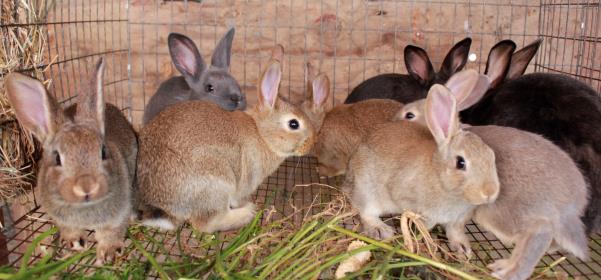Have you ever considered rabbit farming as a top business opportunity?
Though rabbit meat may not be as common as chicken, beef, or pork, there’s no doubt it’s a very lucrative business; every year, over one million tons of rabbit meat is consumed worldwide.
In Africa, the consumption of rabbit meat is gradually taking off and a few farmers on the continent are already enjoying the benefits of this niche business.Rabbits are also easy to raise; they’re clean and require little capital, labour, time and space to manage.
Three major reasons why you should seriously consider the rabbit farming business opportunity include;
1.There is a huge market opportunity for rabbits.
The growing rate of heart disease and related ailments has increased awareness of the harmful effects of cholesterol in our diets.
More people are now going for ‘white’ meat which contains low amounts of cholesterol. Unlike ‘red meats’ (especially beef and pork), white meats like poultry, fish, ostrich and rabbit meat contain less fats and cholesterol and have higher health benefits.
Rabbit meat has the highest amount of protein and contains the lowest fat than all other types of meat. It contains less calories and Sodium than other meats but contains more calcium and phosphorus (which is very good).
As a result of these properties, rabbit meat has become the ‘super meat’ for people looking to eat healthy meats and live a healthier lifestyle. Rabbit meat is also very widely accepted.
More than 700 million rabbits are slaughtered worldwide every year, producing about 1 million metric tons of rabbit meat. The world’s leader in rabbit meat production is China, representing over 30% of total global production.
Rabbit meat is popular in countries such as Italy, Spain, France and China. These countries consume the most rabbit per person (about 8kg per person) and are the best export markets for rabbit meat.
Rabbits produce high quality skins that are used to make fur garments (like clothing, hats and boots), and to cover bicycle seats, etc. Another significant use of rabbits is in cosmetic, medical and pharmaceutical research laboratories. Rabbits are also purchased by people who want to keep them as pets.
2.Rabbit farming is lucrative because rabbit multiply very fast.
A single doe (female rabbit) can give birth up to 40 kits (baby rabbits) in a single year. This means you can start with two mature breeding rabbits (one male, one female) and end up with over 40 rabbits in less than 12 months. That’s because rabbits can breed throughout the year and it takes just about a month (30-33 days) for a pregnant doe to produce baby rabbits.
After they are born, rabbits grow very fast and can reach maturity and market size in less than 6 months. One of the reasons for this fast growth rate is that rabbits are efficient converters of the food they eat.
A mature rabbit ready for market can sell for up to $22 (depending on the location and customer). However, the cost of raising a rabbit comes to about $1 per month.
And because rabbits mature quickly and multiply very fast, they offer one of the best opportunities to quickly recover your costs and investment in a short period of time.
3.East to start, cheap to operate and maintain.
Rabbits don’t need any elaborate preparation or huge capital to start up. You can start with two rabbits (male and female) using a basic cage made of wood and chicken wire.
Unlike chickens, cattle and pigs, rabbits are not noisy animals. They are very clean animals and don’t easily get attacked by diseases.
Above all, rabbits don’t require a lot of space like other livestock; it’s the ideal animal to raise in your backyard or any place with little space.
Raising rabbits is not labor-intensive like cattle and poultry. Rabbits are easy to feed and often don’t need a lot of attention. As a result, a rabbit farming business can be run on a part time basis.
Some kitchen waste, grass, plant leaves etc. are favorite foods of rabbits. In fact, a single rabbit needs just about 120 grams of food daily. You can feed it in the morning before you go to work and then in the evening when you return.
So, in terms of capital, time, space and labour needs, rabbit farming beats poultry, pig farming, and cattle farming.











In Kenya am planning to rear rabbits as full time investment.. My quiz is where do I get their markets..